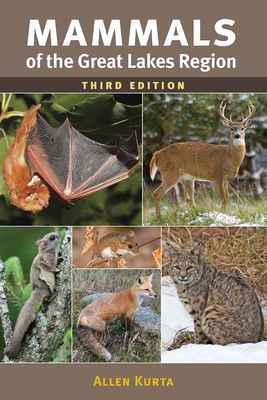
description
3Now in an extensively revised 3rd edition, Mammals of the Great Lakes Region has been an essential reference for countless amateur and professional naturalists since 1957. Easily tucked into a backpack and carried into the field, this heavily illustrated guidebook offers detailed information on 83 species, including each mammal's appearance, behavior, and natural history, along with an explanation of its scientific name. Species accounts are accompanied by new color photographs plus fully updated distribution maps showing the geographic range in the Great Lakes region and in North America. A thorough introduction outlines the environmental factors that affect the distribution and abundance of mammals in Great Lakes ecosystems and discusses the impacts of current human activities, including introduction of diseases and climate change. There is also a section on preparing captured specimens for research or teaching, as well as user-friendly keys and quick reference tables to physical measurements and life history data. Brand new in this edition, the book also features detailed illustrations of the tracks of commonly found mammals to assist with year-round identification. Providing the most up-to-date information on mammals in the Great Lakes basin, this book belongs on the shelves of teachers, students, naturalists, and professional biologists throughout the region.
member goods
No member items were found under this heading.
Return Policy
All sales are final
Shipping
No special shipping considerations available.
Shipping fees determined at checkout.







